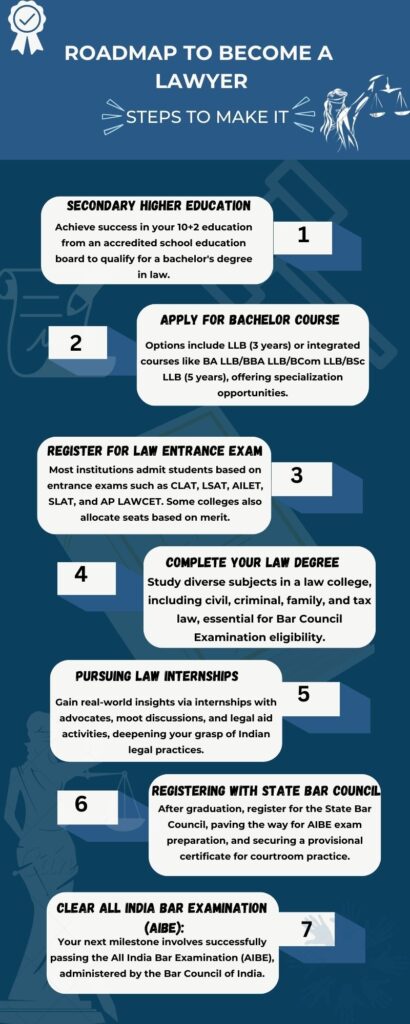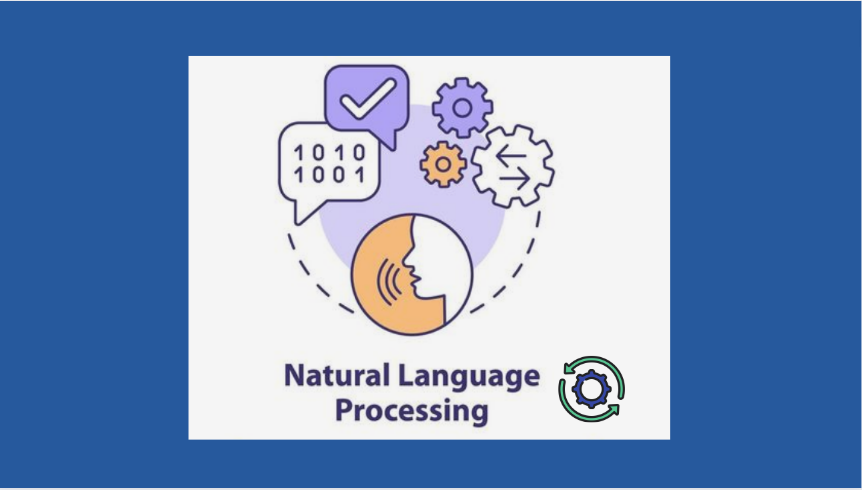Introduction
Choosing Law as a career is a pivotal decision that shapes our future. One such rewarding and diverse field is the law. This comprehensive guide aims to provide insights into the legal profession, particularly focusing on the Indian context.
- Understanding the Legal Profession
- The Journey to Becoming a Lawyer
- Skills Required in Law Profession
- Transforming Your Law Journey Through Specialization
- Suggestions on the Latest law specialization
- Dive into the Best Online Law Courses
- Career Opportunities and Networking
- Practical Experience: Internships and Clerkships
- Ethics in Law
- Work-Life Balance and Financial Consideration
- The legal profession in other countries
- Legal profession is other countries as compared to India?
- Conclusion
- Frequently Asked Questions
Understanding the Legal Profession
Law is a demanding profession that requires a deep understanding of rules, regulations, and legal principles. It often involves long hours, especially at the start of one’s career. However, the profession’s challenges are balanced by the rewards of upholding justice and influencing societal change.
The legal profession is also known for its demanding nature. Lawyers, particularly those in the early stages of their careers, often find themselves working beyond regular hours. This could involve preparing for trials, researching legal precedents, or drafting detailed legal documents. The workload can be intense and the pressure high.
However, the profession is not without its rewards. The ability to advocate for justice, influence societal change, and help clients navigate through legal challenges can bring immense satisfaction. The sense of achievement when you win a case or when your legal advice leads to a positive outcome is often worth the hard work and long hours. In essence, the law is a challenging field, but the intellectual stimulation and the potential to make a significant impact make it a rewarding career choice.
The Journey to Becoming a Lawyer

Roadmap to Become a Lawyer
Basic Education
The path to becoming a lawyer involves a significant commitment of time and resources. In India, aspiring lawyers can opt for a five-year integrated course (BA LLB, BBA LLB, BSc LLB) after their 10+2, or a three-year LLB course after graduation in any discipline.
Once you’ve earned your law degree, the next step is to clear the All India Bar Examination (AIBE). This exam, conducted by the Bar Council of India, qualifies you to practice law across the country.
It’s crucial to note that this educational journey demands a significant investment of time, effort, and financial resources. The rigorous academic curriculum, coupled with the competitive nature of the legal profession, requires a deep commitment. Therefore, before you set foot on this path, ensure that your passion for law and your career aspirations align with the demands and rewards of the legal profession in India.
Skills Required in Law Profession
Lawyers need to possess excellent communication skills, both written and verbal. They must be able to analyze complex situations and devise effective strategies. Attention to detail, critical thinking, and problem-solving skills are also crucial.
| Essential Skills for Lawyers | Description |
| Communication | Ability to articulate points clearly and effectively |
| Analytical Skills | Capacity to understand and apply complex legal principles |
| Attention to Detail | Precision in reviewing legal documents |
| Critical Thinking | Ability to form sound judgments and strategies |
| Problem-Solving | Capacity to find solutions to legal issues |

Transforming Your Law Journey Through Specialization

Law offers a plethora of specializations, each with its unique challenges and rewards. Some popular specializations include corporate law, criminal law, family law, environmental law, and intellectual property law.
Here are some of the specialization streams in law that are becoming increasingly important with the latest technology and changes in the world:
- Cyberlaw deals with the legal issues arising from the use of computers and the internet. This includes topics such as data privacy, intellectual property, and cybercrime.
- Data protection law is concerned with the protection of personal data. This is a rapidly evolving area of law, as new technologies are constantly being developed that can collect and store personal data.
- Intellectual property law protects the creative and innovative works of individuals and businesses. This includes patents, trademarks, copyrights, and trade secrets.
- E-commerce law governs the sale of goods and services over the Internet. This is a complex area of law, as it involves a variety of different legal issues, such as contract law, consumer protection law, and taxation law.
- Environmental law protects the environment and ensures that natural resources are used sustainably. This is an important area of law, as the world faces increasing environmental challenges.
- Healthcare law deals with the legal issues arising from the delivery of healthcare services. This includes topics such as medical malpractice, informed consent, and patient privacy.
These are just a few of the specialization streams in law that are becoming increasingly important with the latest technology and changes in the world. As the world continues to change, new legal challenges will emerge, and lawyers with specialized knowledge in these areas will be in high demand.
In addition to the specializations listed above, many other areas of law are becoming increasingly important with the latest technology and changes in the world. Some of these areas include:
- Privacy law
- Data security law
- Blockchain law
- Artificial intelligence law
- Robotics law
- Space law
These are just a few examples of the many areas of law that are being shaped by technology and the changing world. As lawyers, it is important to stay up-to-date on these trends so that we can provide our clients with the best possible legal advice.
Suggestions on the Latest law specialization
- Read legal journals and magazines. This is a great way to stay up-to-date on the latest legal developments in your area of specialization.
- Attend conferences and workshops. This is a great way to network with other lawyers and learn about new legal trends.
- Take online courses or seminars. There are many online courses and seminars available that can help you stay up-to-date on the latest law specialization streams.
- Join professional organizations. This is a great way to stay connected with other lawyers in your area of specialization and learn about new legal developments.
- Subscribe to legal newsfeeds and newsletters. This is a great way to stay up-to-date on the latest legal developments in your area of specialization.
Dive into the Best Online Law Courses
- Cyberlaw:
- The International Association of Privacy Professionals (IAPP) offers a variety of resources for staying up-to-date on cyberlaw, including its Knowledge Center and Certifications.
- The Center for Internet & Society at Stanford Law School publishes the Cyberlaw Blog, which provides news and analysis on cyberlaw and technology policy.
- The National Cyber Security Commission of India (NCSC) publishes the Cyberlaw Blog, which provides news and analysis on cyber law and technology policy in India.
- The Indian Institute of Information Technology, Bangalore (IIITB) offers a Postgraduate Diploma in Cyber Law
- Data protection law:
- The European Data Protection Supervisor (EDPS) publishes the EDPS Blog, which provides news and analysis on data protection laws and policies in the European Union.
- The International Association of Privacy Professionals (IAPP) offers a Certification in data protection law.
- The Personal Data Protection Bill, 2019 is the proposed legislation for data protection in India.
- The Indian Computer Emergency Response Team (CERT-In) publishes the CERT-In Bulletin, which provides information on cyber security threats and vulnerabilities.
- Intellectual property law:
- The American Intellectual Property Law Association (AIPLA) publishes the AIPLA Blog, which provides news and analysis on intellectual property law.
- The United States Patent and Trademark Office (USPTO) offers a Patent Bar Exam, which is a certification exam for those who want to practice patent law in the United States.
- The Indian Patent Office publishes the Indian Patent Journal, which provides information on patents granted in India.
- The Indian Trademark Office publishes the Indian Trademark Journal, which provides information on trademarks registered in India.
- E-commerce law:
- The American Bar Association (ABA) offers a Certification in e-commerce law.
- The Uniform Law Commission publishes the Uniform Electronic Transactions Act (UETA), which is a model law that has been adopted by many states in the United States.
- The Ministry of Electronics and Information Technology (MeitY) publishes the E-Commerce Policy, which sets out the government’s vision for e-commerce in India.
- The Competition Commission of India (CCI) publishes the CCI Bulletin, which provides information on cases relating to competition law in India
- Environmental law:
- The Environmental Law Institute publishes the Environmental Law Reporter, which provides news and analysis on environmental law.
- The American Bar Association (ABA) offers a Certification in environmental law.
- The Ministry of Environment, Forest and Climate Change (MoEFCC) publishes the Environmental Impact Assessment Notification, 2006, which sets out the procedures for conducting environmental impact assessments in India.
- The National Green Tribunal (NGT) is a specialized tribunal that hears cases relating to environmental protection in India.
- Healthcare law:
- The American Health Lawyers Association (AHLA) publishes the AHLA Blog, which provides news and analysis on healthcare law.
- The American Bar Association (ABA) offers a Certification in healthcare law.
- The Indian Medical Council (MCI) is the statutory body that regulates medical education and practice in India.
- The National Health Policy, 2017 sets out the government’s vision for healthcare in India.
These are just a few suggestions, and there are many other resources available. The best way to find the resources that are right for you is to do some research and find the ones that you find most helpful.
Career Opportunities and Networking
A law degree opens doors to a variety of careers. You could become a legal consultant, a law professor, a policy analyst, or even work in business or politics. Networking plays a crucial role in the legal profession. Attending law-related events, joining law societies, and securing internships at law firms can provide valuable experience and connections.
Practical Experience: Internships and Clerkships

Internships
Practical experience is invaluable in the legal profession. Look for opportunities to work as an intern or clerk in a law firm, government agency, or other legal setting. This will give you a taste of what it’s like to work in law and help you make informed decisions about your career path.
Ethics in Law
Law is a profession with high ethical standards. Lawyers are expected to uphold the law and work in the best interests of their clients. Understanding and being prepared to uphold these ethical standards is crucial.
Work-Life Balance and Financial Consideration
The law can be a demanding profession with long hours, especially in the early years. Balancing work and personal life is essential. Additionally, while law school can be expensive, lawyers also have the potential to earn high salaries, especially in certain specialties and large law firms.

work-life balance
The legal profession in other countries
| United States | Education: In the US, one must first complete a four-year bachelor’s degree in any field, followed by a three-year Juris Doctor (JD) degree from a law school. |
| Bar Exam: After obtaining a JD, aspiring lawyers must pass the bar exam in the state where they wish to practice. | |
| Practice: The US follows a common law system, and lawyers can specialize in numerous areas such as corporate law, criminal law, constitutional law, etc. | |
| United Kingdom | Education: In the UK, one can pursue a three-year undergraduate law degree (LLB). Non-law graduates can take a one-year conversion course known as the Graduate Diploma in Law (GDL). |
| Training: After the LLB or GDL, students must complete the Legal Practice Course (LPC) for solicitors or the Bar Professional Training Course (BPTC) for barristers. This is followed by a two-year training contract (for solicitors) or a one-year pupillage (for barristers). | |
| Practice: The UK also follows a common law system. However, the legal profession is divided into solicitors (who do the paperwork and meet with clients) and barristers (who represent clients in court). | |
| Australia | Education: In Australia, one can either pursue a four-year undergraduate Bachelor of Laws (LLB) degree or a three-year Juris Doctor (JD) postgraduate degree if they already have a bachelor’s degree in another field. |
| Training: After obtaining their degree, law graduates must complete the Practical Legal Training (PLT) which includes coursework and a period of supervised training. | |
| Practice: Australia follows a common law system. Lawyers in Australia can work as solicitors or barristers, similar to the UK. |
Legal profession is other countries as compared to India?
- Education: In India, students can pursue a five-year integrated law degree (BA LLB, BBA LLB, BSc LLB) after high school, or a three-year LLB course after graduation in any discipline.
- Bar Exam: After obtaining their degree, law graduates must clear the All India Bar Examination (AIBE) to practice law in India.
- Practice: India follows a hybrid legal system with elements of civil law, common law, and customary or religious law. Unlike the UK and Australia, there’s no formal division of lawyers into solicitors and barristers in India.
Conclusion
Choosing a career in law is a personal decision that should align with your passion for justice, problem-solving abilities, and preparedness for the challenges of the profession. If these resonate with you, the law could be a great fit for you.
Suggested External Links:
To learn more about Careers, check out this website https://futurereadytools.com/category/careers/
Frequently Asked Questions
Q. 1. What does a lawyer do?
A. A lawyer, also known as an attorney, counsels clients and represents them in legal disputes. This can involve drafting legal documents, researching laws and regulations, negotiating on behalf of clients, and presenting cases in court.
Q. 2. What are the educational requirements to become a lawyer?
A. To become a lawyer, one typically needs to complete a bachelor’s degree, followed by three years of law school. After law school, aspiring lawyers must pass the bar exam in the state where they wish to practice.
Q. 3. What skills are important for a lawyer?
A. Important skills for a lawyer include strong analytical abilities, excellent communication skills, critical thinking, research skills, and the ability to advocate for clients. Lawyers also need to have a strong work ethic and high ethical standards.
Q. 4. What are the different types of lawyers?
A. There are many types of lawyers, each specializing in a different area of law. Some common types include criminal lawyers, corporate lawyers, family lawyers, immigration lawyers, intellectual property lawyers, and personal injury lawyers.
Q. 5. How long does it take to become a lawyer?
A. It typically takes about seven years to become a lawyer after high school: four years for a bachelor’s degree and three years for a law degree. After law school, it may take several months to prepare for and pass the bar exam. Please note that the education requirements may vary from country to country.
Q. 6. What is the job outlook for lawyers?
A. The job outlook for lawyers varies depending on the specific field of law and geographic location. However, the legal profession is generally stable and can offer a high earning potential.
Q. 7. What is the work environment like for a lawyer?
A. Lawyers work in a variety of settings, including law firms, government agencies, corporations, and non-profit organizations. The work can often be demanding and stressful, with long hours, especially for lawyers in private practice.
Q. 8. What is the average salary for a lawyer?
A. The average salary for a lawyer can vary widely depending on the lawyer’s specialty, location, and level of experience. However, the legal profession is known for its high earning potential.
Q. 9. What are the challenges of being a lawyer?
A. Being a lawyer can be stressful and demanding. Lawyers often work long hours and have to deal with complex, high-stakes issues. The profession can also be competitive, especially for jobs at top law firms.
Q. 10. Why should I choose a career in law?
A. A career in law can be intellectually challenging and rewarding. Lawyers have the opportunity to help individuals, businesses, and communities navigate the legal system. The profession also offers a high earning potential and opportunities for advancement.




